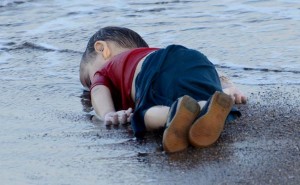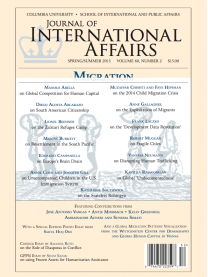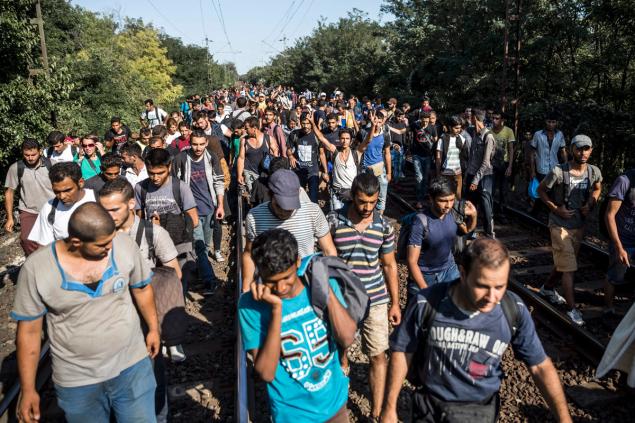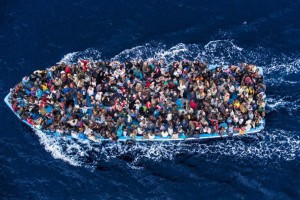When Syrian Refugees Become Diasporas
As America carries on a vitriolic internal debate about illegal immigration and some ludicrous headline-grabbing talk about building walls to separate itself from Mexico and even Canada, the rest of the world has reacted with shock and compassion of the horrors faced by migrants.
Whether it was the images first of North African refugees crossing the Mediterranean in dangerously overpacked (and frequently sinking) boats,
or of dozens of dead migrants in trucks

Gruesome find: in August 2015, 71 dead migrants were found in a truck abandoned by the side of the Austrian highway. Image Source
or, ultimately, the image of the Syrian boy, Aylan Kurdi, drowned on a beach,

The image of Aylan Kurdi, a Syrian refugee, that shocked world consciousness. Image Source
the plight of migrants fleeing war and poverty has risen to the top of public discourse.
Pressure is mounting on the Persian Gulf countries to accept more Syrian refugees, who are mostly their Sunni brethren, whose interests they claim to defend. The debate rages and the accusations of blood-on-their-hands fly: the GCC blame the US & EU for botching Iraq and not interfering in Syria except by arming the rebels, the US & EU counter-attack by claiming that the GCC only funds violent extremist groups within the anti-Shia and anti-Alawite rebel groups, but does too little to take in their brethren fleeing the violence, preferring to protect their phenomenally high per-capita income, while poorer countries like Turkey and Lebanon welcome the bulk of the refugees. Now Germany is taking the refugees in, further shaming the GCC.
Human trafficking and migratory flows has many security dimensions, too, that I have spoken about to INTERPOL and written about recently for Columbia University’s Journal of International Affairs.

Columbia University’s Journal of International Affairs’ issue on Migration, featuring “Never Mind the Metrics,” by Dr. Vanessa Neumann
In security circles, I have written and spoken extensively about the criminal activation or violent radicalization of diaspora networks.
Today’s refugees are tomorrow’s diasporas.
If they feel oppressed or disenfranchised, they can easily be turned to serve the purposes of transnational organized criminals or recruited into violent extremism. You need look only to the home-grown Muslim radicals in the UK, France and even Germany.
If they feel welcomed and can build a prosperous new life where they arrive, they can become drivers of economic growth and active and responsible members of their new community, as my family did when they fled the Nazis and then the Communists. They — and many others — were supremely grateful for the peaceful integration they experienced.
The communities that accept the refugees and the ones that reject them, would do well to consider the long-term consequences of their choices. History has shown that the memories of these new communities for feelings of gratitude or marginalization can be very long indeed — and have revolutionary consequences.
![]()




